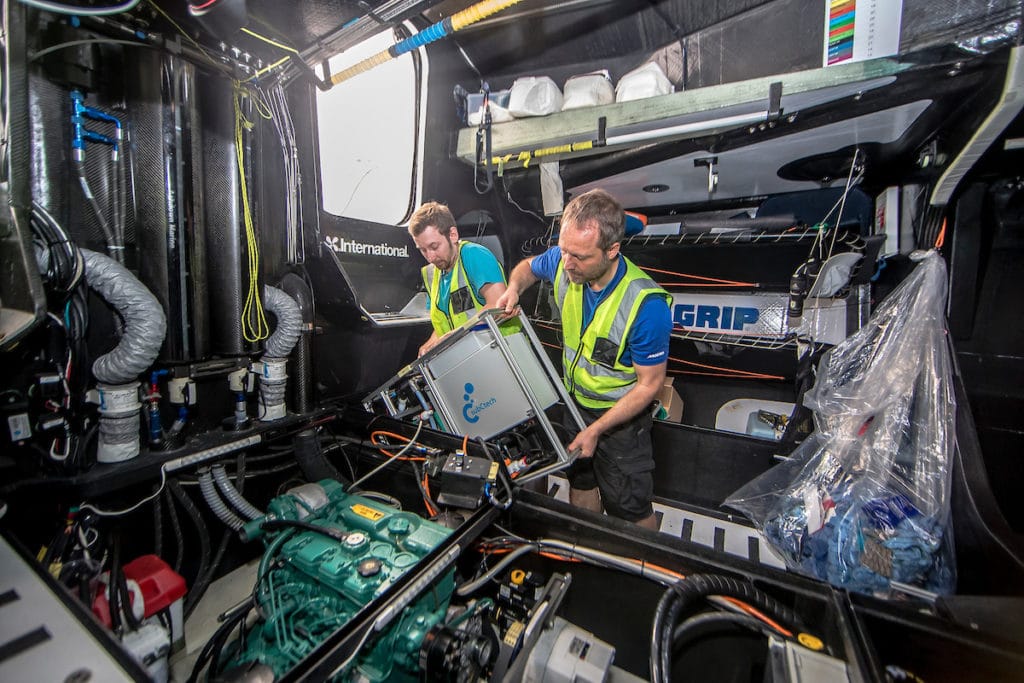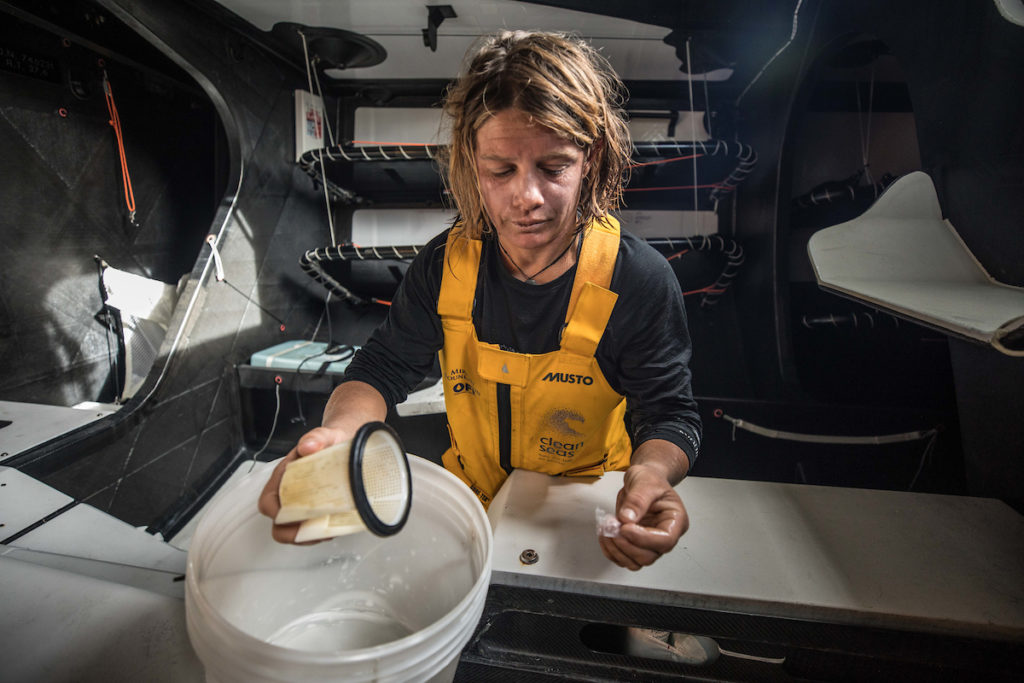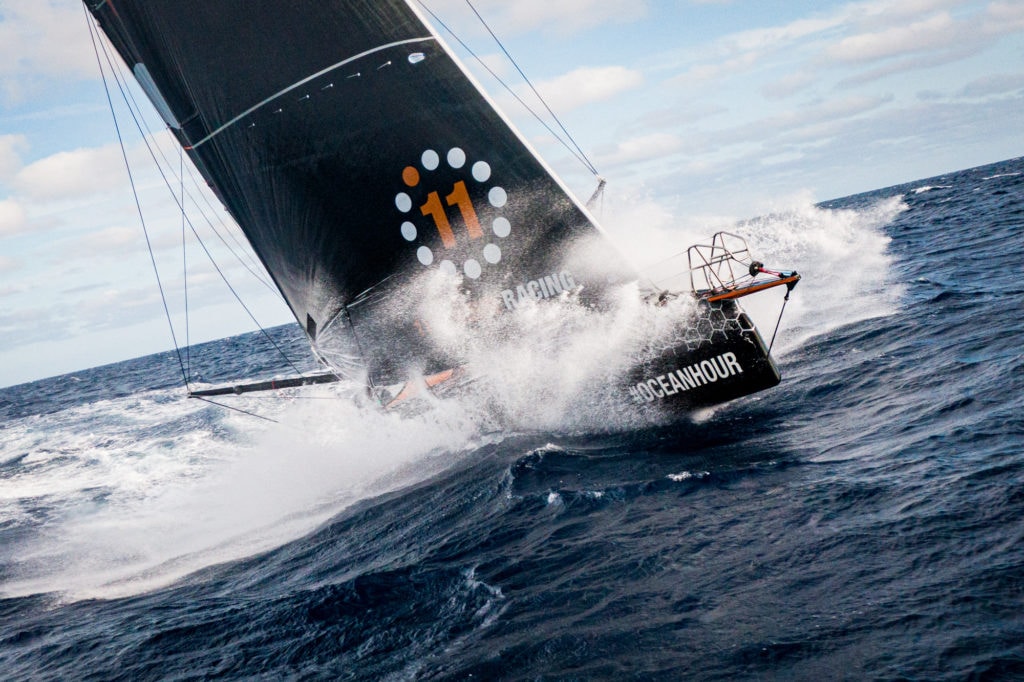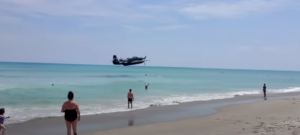The Ocean Race Europe to gather data on the state of the seas
 Auckland Stopover. Fitting of the microplastic data equipment on AkzoNobel boat. 03 March, 2018.
Auckland Stopover. Fitting of the microplastic data equipment on AkzoNobel boat. 03 March, 2018.
The Ocean Race says some of its competitors will collect data about the impact that humans are making on the ocean during its inaugural European Race.
Several teams taking part will carry scientific equipment to capture measurements of microplastics in the water and data about the impact of climate change on the seas. The Ocean Race Europe scientific data collection activity is endorsed by the UN Decade of Ocean Science for Sustainable Development, which supports efforts to reverse the cycle of decline in ocean health and create improved conditions for sustainable development of the ocean.
Two classes of boat will take part in the race, IMOCA 60s and VO65s. Two VO65 teams will take samples of microplastics as they race, AmberSail2 and W Ocean Racing team, while one IMOCA 60 boat, sailed by the 11th Hour Racing Team, will take 24/7 surface measurements of carbon dioxide (CO2), sea temperature and salinity – indicators of climate change.
The data collected during The Ocean Race Europe will be provided to scientific organisations that are studying and mapping these issues. Measurements of dissolved CO2 taken by the 11th Hour Racing Team will be used by EuroSea, a European Commission funded programme that assesses the role of the ocean in climate change and improves the ocean observing system. During The Ocean Race Europe, boats will race through the Western Mediterranean, one of the global hotspots for carbon absorption by the ocean and one of EuroSea’s focus areas for their carbon audit project.

“The ocean is doing humankind a great service by absorbing huge amounts of CO2 and heat. EuroSea is working to improve the way that these benefits are measured and understood, including the monetary value they bring,” says Dr. Toste Tanhua from EuroSea.
“The Mediterranean Sea is very efficient at absorbing CO2, but its ability to do this can vary and needs to be closely monitored, which is why additional data is so useful. Working together with the sailing community on this quest is a great opportunity to align our interest and passion for the sea for a common goal.”
11th Hour Racing Team will submit CO2 measurements to the Surface Ocean Carbon Dioxide Atlas (SOCAT), which provides data for the Global Carbon Budget, a yearly assessment of CO2 that informs targets and predictions for carbon reduction. It is vital that scientists understand the levels of CO2 in the ocean to form an accurate budget and keep the world on track to stay within the Paris Agreement goal of limiting global warming to below 1.5 degrees Celsius.
“The unique feature of The Ocean Race is that the vessels go lightning-fast,” says Erik van Sebille, Oceanographer at Utrecht University. “This speed provides a great opportunity for us, because it means that the measurements at different locations are taken with a minimum amount of time between them, meaning the ocean currents won’t have changed during the sampling. This makes interpretation of the observations much easier. Measuring microplastics in the ocean is really difficult work, and the more organisations and teams help out, the more data we get.”
The Ocean Race Europe takes place in May/June this year, starting in Lorient in North West France and finishing in Genoa, Italy. As well as capturing data during the race, Ambersail2 will also collect data during a prologue event in the Baltic Sea in Northern Europe. This will be the first time such measurements have been taken in the Baltic sea, which is considered to have very high pollution levels. Gathered data will be shared with the Marine Research Institute in Klaipeda University for further research of pollution in the Baltic sea.











